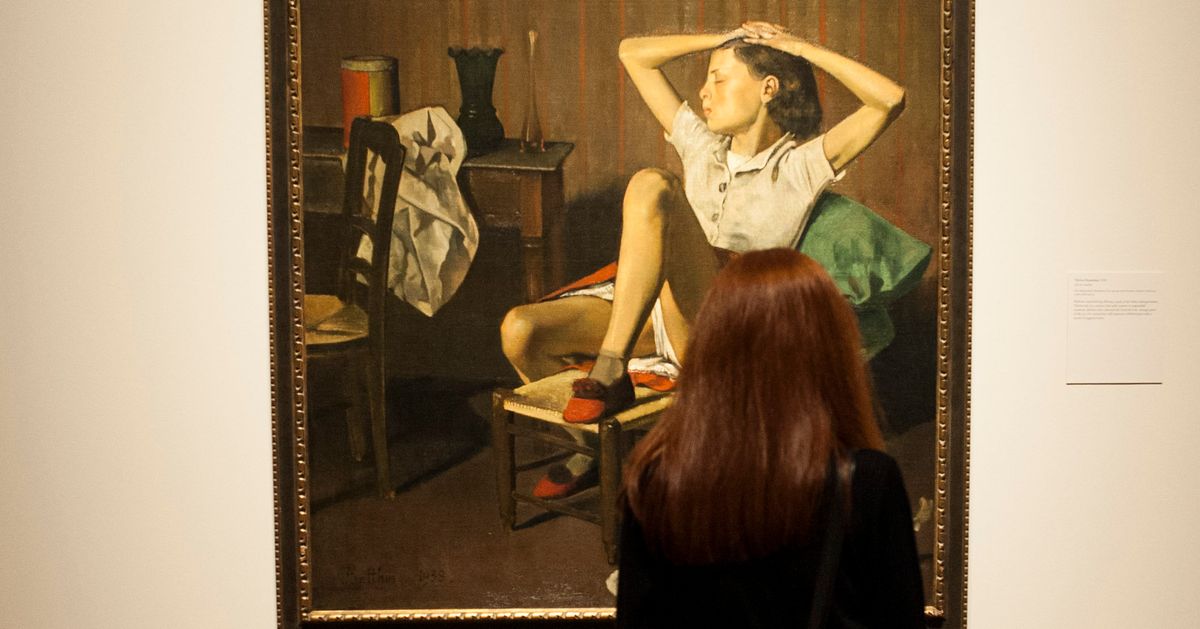The Metropolitan Museum of Art will not remove a painting that an online petition claims “sexualizes” the image of a girl, said a museum official.
Apparently inspired in part by the atmosphere of complaints about sexual harassment, New York City entrepreneur Mia Merrill launched the petition calling for the museum to remove the work, “Thérèse Dreaming,” because it presents the girl in a “sexually suggestive pose.”
The 1938 painting by French artist Balthus shows a girl of 12 or 13 sitting in what seems to be a bedroom with her eyed closed and hands on her head. One of her legs is bent at the knee, with her foot resting on the chair. Her skirt has fallen open and her underwear is exposed.
“‘Thérèse Dreaming’ is an evocative portrait of a prepubescent girl relaxing on a chair with her legs up and underwear exposed,” Mia Merrill wrote on the petition posted on the Care2 website on Thursday. “It is disturbing that the Met would proudly display such an image.”
Given the “current climate around sexual assault and allegations that become more public each day, in showcasing this work for the masses, the Met is romanticizing voyeurism and the objectification of children,” Merrill added. The petition had more than 8,000 signatures Monday night.
Museum spokesman Kenneth Weine said the Met would not remove the work and told the New York Post that “moments such as this provide an opportunity for conversation.”
He added that the Met’s “mission is to collect, study, conserve, and present significant works of art across all times and cultures in order to connect people to creativity, knowledge and ideas.”
The National Coalition Against Censorship issued a statement Monday supporting the museum’s decision.
“Recent cases of censorship, including the threats of violence that forced the Guggenheim Museum in New York to remove several exhibits, reveal a disturbing trend of attempts to stifle art that engages difficult subjects,” said the NCAC statement. ” Art can often offer insights into difficult realities and, as such, merits vigorous defense.”
Merrill said in the petition that Balthus had a “noted infatuation with pubescent girls” and called his work “pedophilic.” The painting features Thérèse Blanchard, a Paris neighbor of Balthus.
In an update to her petition Monday, Merrill said she would also consider her petition a success if the Met included a message with the painting “as brief as: “Some viewers find this piece offensive or disturbing, given Balthus’ artistic infatuation with young girls.”
It’s not the first time viewers have been disturbed by Balthus’ paintings. A review in The Guardian of an exhibit of Balthus’ works in 2013 at the Met, which included “Thérèse Dreaming,” noted the artist had an “inordinate fixation on girls who’d just hit puberty” and that the paintings had an “unsettling undertone” because of the “erotic images of children.” A sign at the start of the exhibit at the Met that year warned that “some of the paintings in this exhibition may be disturbing to some visitors.”
